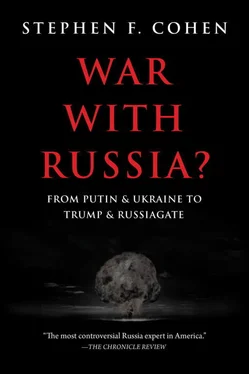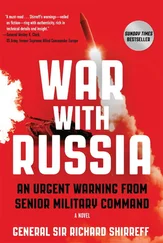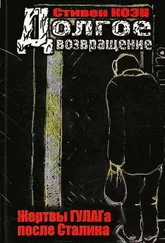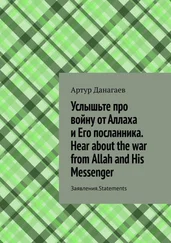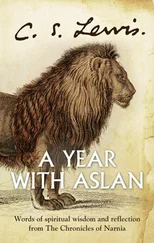But how to explain, other than as unbridled extremism, comments by a former US ambassador to Moscow, himself a longtime professor of Russian politics and favored mainstream commentator? According to him, Russia had become a “rogue state,” its policies “criminal actions,” and the “world’s worst threat.” It had to be countered by “preemptive sanctions that would go into effect automatically”—“every day,” if deemed necessary. 122Considering “crushing” sanctions then being prepared by a bipartisan group of US senators “to punish” Moscow, 123this would be nothing less than a declaration of permanent war against Russia: economic war, but war nonetheless.
• Meanwhile, other new Cold War fronts were becoming more fraught with hot war, none more so than Syria. On September 15, 2018, Syrian missiles accidentally shot down an allied Russian surveillance aircraft, killing all fifteen crew members. The cause was combat subterfuge by Israeli warplanes in the area. The reaction in Moscow was indicative—and potentially ominous.
At first, Putin, who had developed good relations with Israel’s political leadership, said the incident was an accident caused by the fog of war. His own Defense Ministry, however, loudly protested that Israel was responsible. Putin quickly retreated to a more hardline position, and in the end vowed to send to Syria Russia’s highly effective S-300 surface-to-air defense system, a prize long sought by both Syria and Iran.
Clearly, Putin was not the ever “aggressive Kremlin autocrat” unrelentingly portrayed by US mainstream media. Still a moderate in the Russian context, he again made a major decision by balancing conflicting groups and interests. In this instance, he accommodated longstanding hardliners (“hawks”) in his own security establishment.
The result was yet another Cold War tripwire. With the S-300s installed in Syria, Putin could in effect impose a “no-fly-zone” over large areas of the country, which had been ravaged by war due, in no small part, to the combat presence of several foreign powers. (Russia and Iran were there legally; the United States and Israel were not.) If so, it meant a new “red line” that Washington and its ally Israel would have to decide whether or not to cross. Considering the mania in Washington and in the mainstream media, it was hard to be confident restraint would prevail.
All this unfolded around the third anniversary of Russia’s military intervention in Syria in September 2015. At that time, Washington pundits denounced Putin’s “adventure” and were sure it would fail. Three years later, “Putin’s Kremlin” had destroyed the vicious Islamic State’s grip on significant parts of Syria, for which it still got no credit in Washington; all but restored President Assad’s control over most of the country; and made itself the ultimate arbiter of Syria’s future. In keeping with his Russia policy, President Trump probably was inclined to join Moscow’s peace process, though it was unlikely the mostly Democratic Russiagate party would permit him to do so. (For perspective, recall that, in 2016, presidential candidate Hillary Clinton called for a US no-fly zone over Syria to defy Russia.)
• As I finish this book, another Cold War front also became more fraught. The US-Russian proxy war in Ukraine acquired a new dimension. In addition to the civil war in Donbass, Moscow and Kiev began challenging the other’s ships in the Sea of Azov, near the vital Ukrainian port of Mariupol. Trump was being pressured to supply Kiev with naval and other weapons to wage this evolving maritime war, yet another potential tripwire. Here too the president should instead have put his administration’s weight behind the long-stalled Minsk peace accords. But that approach also seemed ruled out by Russiagate, which by October 2018 included yet another Times columnist, Frank Bruni, branding all such initiatives by Trump “pimping for Putin.” 124
After five years of extremism exemplified by these more recent examples of risking war with Russia, there remained, for the first time in decades of Cold War history, no countervailing forces in Washington—no pro-détente wing of the Democratic or Republican Party, no influential anti-Cold War opposition anywhere, no real public debate. There was only Trump, with all the loathing he inspired, and even he had not reminded the nation or his own party that the presidents who initiated major episodes of détente in the 20th century were also Republicans—Eisenhower, Nixon, Reagan. This too seemed to be an inadmissible “alternative fact.”
And so the eternal question, not only for Russians: what is to be done? There was a ray of light, though scarcely more. In August 2018, Gallup asked Americans what kind of policy toward Russia they favored. Even amid the torrent of vilifying Russiagate allegations and Russophobia, 58 percent wanted “to improve relations with Russia” as opposed to 36 percent preferring “strong diplomatic and economic steps against Russia.” 125
This reminds us that the new Cold War, from NATO’s eastward expansion and the Ukrainian crisis to Russiagate, has been an elite project. Why, after the end of the Soviet Union in 1991, US elites ultimately chose Cold War rather than partnership with Russia is a question beyond the limits of this book and perhaps my ability to answer. As for the role of US intelligence elites, what I have termed Intelgate, efforts are still under way to disclose it fully, and being thwarted. 126
A full explanation of the Cold War choice would include the political-media establishment’s needs—ideological, foreign-policy, budgetary, among others—for an “enemy.” 127Or, Cold War having prevailed for more than half of US-Russian relations during the century since 1917, maybe it was habitual. Substantial “meddling” in the 2016 election by Ukraine and Israel, to illustrate the point, did not become a political scandal. 128In any event, once this approach to post-Soviet Russia began, promoting it was not hard. The legendary humorist Will Rogers quipped back in the 1930s, “Russia is a country that no matter what you say about it, it’s true.” Back then, before the 40-year Cold War and nuclear weapons, the quip was funny, but no longer.
Whatever the full explanation, many of the consequences I have analyzed along the way continue to unfold, not a few unintended and unfavorable to America’s real national interests. Russia’s turn away from the West, its “pivot to China,” is now widely acknowledged and embraced by many Moscow policy thinkers. 129Even European allies occasionally stand with Moscow against Washington. 130The US-backed Kiev government still covers up who was really behind the 2014 Maidan “snipers’ massacre” that brought it to power. 131Mindless US sanctions have helped Putin to repatriate oligarchic assets abroad, an estimated $90 billion already in 2018. 132Mainstream media persist in distorting Putin’s foreign polices into something “that even the Soviet Union never dared to try.” 133And when an anonymous White House “insider” exposed in the Times “the president’s amorality,” the only actual policy he or she singled out was Russia policy. 134
I have focused enough on the surreal demonizing of Putin—the Post even managed to characterize popular support for his substantial contribution to improving life in Moscow as “a deal with the devil”—but it is important to note that this “derangement” is far from world-wide. 135Even a Post correspondent conceded that “the Putin brand has captivated anti-establishment and anti-American politicians all over the world.” 136A worldly British journalist confirmed that as a result “many countries in the world now look for a reinsurance policy with Russia.” 137And an American journalist living in Moscow reported that “ceaseless demonization of Putin personally has in fact sanctified him, turned him into the Patron Saint of Russia.” 138
Читать дальше
